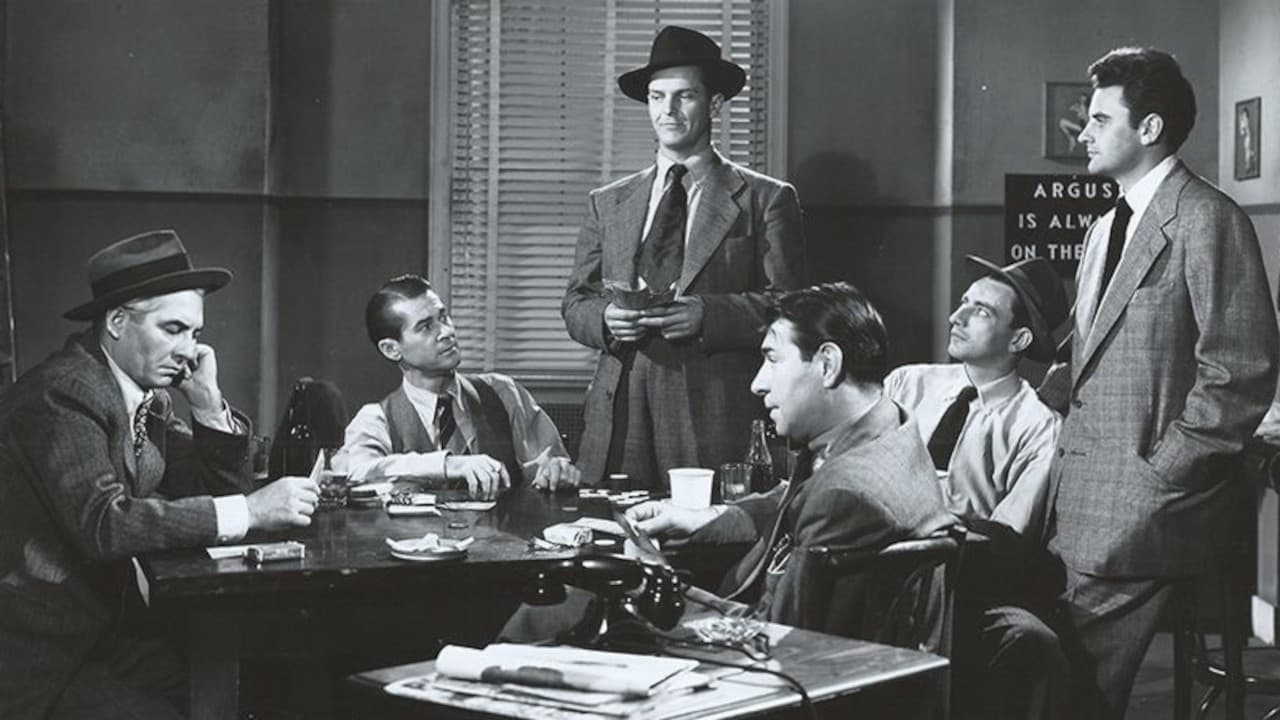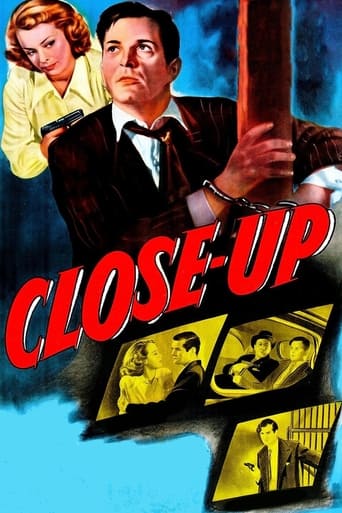Voxitype
Good films always raise compelling questions, whether the format is fiction or documentary fact.
Salubfoto
It's an amazing and heartbreaking story.
Benas Mcloughlin
Worth seeing just to witness how winsome it is.
Guillelmina
The film's masterful storytelling did its job. The message was clear. No need to overdo.
clanciai
I love this film. It's so full of surprising turnings and brilliant innovations that you actually must enjoy being taken for a ride. The story in itself is ingenious, by accident an ordinary news reel camera man gets someone like Martin Bormann into the picture, and naturally those Nazis having just come out of the bank after some major transactions want to get hold of that film as a matter of life and death.. What follows is a tumultuous roller-coaster of a hunt for the negative, which involves no end to confuisons, and naturally there is a double-crossing dame involved also, and the poor journalist in all his innocence has every reason to get mad. Fortunately he has a cheerful assistant who always manages to keep him happy after all.There are some striking shots on the way that Hitchcock would have enjoyed, and of course some major close-ups. This is one of those films that in all their confusing up and down turnings leaving you more bewildered than the hero. you must look forward to seeing it some time again.
kapelusznik18
***SPOILERS***Released the same year that the movie "The Naked City" was released in it being advertised as the first film shot exclusivity on location in the "Big Apple" the movie "Close-Up" is about a newsreel editor Phil Sparr, Alan Baxter, who accidentally gets involved with a fugitive Nazi war criminal Harr Martin Beaumont-Not Bormann- played by Dorothy Kilgallen's husband Richard Kollmar whom he had filmed leaving the 5th Ave bank who almost knocked over the woman model in a fashion shoot that he was filming.It's when the film was developed Beaumont-not his real name- was discovered to be present at Adolf Hitler's famous rip roaring speech in Berlin given on April 28, 1939 to the Reichstag just 4 months before the start of WWII. Thought to have been killed in the battle of Berlin three years ago-1945-Beaumont has resurfaced in NYC planning to start up the destroyed Nazi movement with the help of small time mobster Joseph Gibbons, Phillip Huston, who wants to make the big time as the #1 hood in the city. Sparr is later kidnapped by Gibbons impersonating a New York police detective who tries to retrieve the film of Beaumont that he took who offered him $20,000.00 for it.***SPOILERS***It's later after Sparr escaped with the help of Gibbon's gun-moll, who felt that he was two timing her, Peggy Lake played by Virginia Gilmore he found out that there was a falling out between the two-Gibbons & Beaumont-with Beaumont planning to escape by sea plane on the Hudson River docks to South America. this lead to a major shoot-out between Sparr and Beaumont as well as the NYPD with Beaumont ending up getting the worst of it. In the end Peggy got a light sentence by cooperating with the police and Sparr gets a raise in pay for helping catch, as well as gun down,Nazi fugitive Martin Beaumont. As for Gibbon his plans as being the #1 hood in town ended when he was himself gunned down by Beaumont as he tried, by him all of a sudden becoming patriotic, to prevent him from escaping the long arm of the law.P.S Check out Sid Melton as cab driver Stanislaus Kranobowsky who ended up getting bopped in the head waiting for Sparr who took time off or left his cab to get a cup of coffee. Melton was involved three years later in 1951 in two of the most touching and heart wrenching death scenes in movie history: In the movie "The Steel Helmet" where was stabbed in the back by a sneaky North Korean communist whom he foolishly turned his back on and in the movie "The Lost Continent" where he was brutally gored to death by a 10 ton charging triceratops.
mark.waltz
American film makers always believe that the bad guys are always caught at some point, even if it is years after they commit their crimes. Here, the criminals are of two different backgrounds: an important Nazi officer known as "the butcher" and an American gangster who is in cahoots with the nasty Nazi and his brood of German thugs. It all comes out in the open when a married man contacts movie photographer Alan Baxter on the pretext of getting the movie footage and negative of him and a woman he wasn't married to and the intrigue that comes out of that when his boss recognizes one of the men walking out of the bank they were shooting in. This leads to a chase throughout New York City between Baxter, boss Loring Smith and the beautiful Virginia Gilmore who isn't quite the innocent young reporter she seems to be. Lots of great location footage, including a chase on a ferry, fill this engaging film noir with lots of intrigue and plenty of nefarious characters popping in and out of the action.
Benoit Vanhees
Without realizing it, two newsreel reporters took pictures of a surviving nazi-leader in front of a bank, while filming fashion mannequins in the streets of New York. The German, who was thought to have died during the war, was inquiring if he could recuperate a large sum of money. He needs it, to be able to continue Hitler's dream after the dictator's death. He is helped by a criminal gang, which is only in it for a slice of the money, not for political reasons. Hal Ericson's description in the All Movie Guide of the gang as being a "secret neo-nazi gang" is therefor incorrect. The gang will make several attempts to recuperate the film and its negatives, including by kidnapping one of the reporters. The boss of the two reporters however discovers whose face has been captured on the newsreel, and contacts the authorities.The problem with this rare B movie is that it just can't decide whether it wants to be a kind of political thriller, a crime movie or some kind of comedy. The final result therefor isn't very bright, without being terrible at the same time. The movie sure is watchable till the predictable end, but well... The script isn't always very convincing or logical. While the Nazi leader's henchman doesn't hesitate to kill one of the criminals, the 'hero' has more luck, and only gets knocked out with a gun on his head. Dialogs are quite poor, no cute « one-liners », no quick exchanges of wisecracks etc. Well, the hero's colleague is trying to be a funny guy every now and then, but the movie would have done perfectly well without this kind of clowning.Alan Baxter may be in the words of Hal Ericson a "character actor", but you won't see very much of it in this movie. Alan Ladd playing like he played in The Glass Key though would have made a good choice. That would have given the movie that extra status it desperately needed to rise above its mediocrity. The soundtrack doesn't help either. While the main title track you'll hear while the names of the actors are shown is OK, the music during the key moments of the movie doesn't support the action. I'd rather qualify it as simply irritating. I'd give it a 6/10

